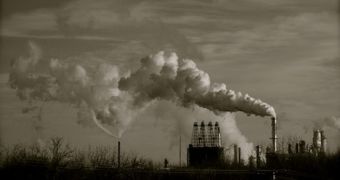Just yesterday, the US Senate made mincemeat of senator James Inhofe's attempt to keep EPA from implementing new Mercury and Air Toxics Standards (MATS).
At the end of the day, there was a 46-53 vote against Inhofe and his not quite environmentally friendly ways, as 5 Republicans and 48 Democrats supposedly teamed up to keep him from going against EPA.
When we last reported on this issue, we explained that EPA's reasons for pushing new MATS had to do with the fact that, as indicated by numerous studies, the US's coal industry is presently responsible for releasing considerable amounts of harmful substances such as mercury, arsenic, cyanide, nickel and acid gases into the atmosphere.
Under the new MATS, this phenomenon will fall under some sort of control, thus benefiting both the population and the environment.
However, as The Hill reports, some high officials argue that EPA's putting a leash on the national coal industry will have devastating effects on the country's economy, as odds are fewer electricity will be produced and countless people will lose their jobs.
Apparently, Senate Minority Leader Mitch McConnell argued that “A substantial amount of the electricity we produce in the country comes from coal. And this new regulation would devastate the jobs that depend on this cheap, abundant resource.”
EPA fights back these accusations and explains that whatever money is lost by “crippling” the coal industry will be returned to the national budget in the form of savings made to the health department.
According to EPA representatives, the country's present levels of air pollution are responsible for 11,000 premature deaths, 4,700 heart attacks and 130,000 cases of child asthma on an annual basis.
By improving on these figures, the US could economize about $90 million (roughly €71 billion) per year.
Although only time will tell how new MATS will affect the US's economy, what we can be sure of is that public health will considerably begin to improve in the not-so-distant future.

 14 DAY TRIAL //
14 DAY TRIAL //